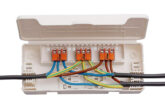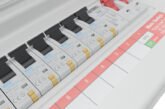
The team at Redwood Collections identify the five common payment pitfalls electricians and electrical businesses face, and how to best avoid them.
We know you’re focused on delivering top-quality work, ensuring every job is carried out safely and efficiently. However, no matter how skilled you are, there’s one aspect of the business that can be a constant headache: getting paid.
Here are five pitfalls that electricians commonly face when it comes to payments, along with practical tips to help you avoid them:
1. Lack of clear payment terms
One of the biggest mistakes is not having clear, written payment terms. Without defined terms, misunderstandings can easily occur, leading to delays or disputes over payment.
How to avoid it:
Always include detailed payment terms in your contracts. Specify everything from the total cost to the payment schedule and due dates. This clarity upfront ensures both you and your client are on the same page, reducing the chances of confusion later.
2. Relying on verbal agreements
Verbal agreements might seem straightforward, but they can lead to complications, especially when it comes to collecting payments. Without a written record, it’s easy for details to be forgotten or misinterpreted.
How to avoid it:
Put everything in writing, from the scope of work to payment expectations. Even simple projects benefit from a written agreement, which serves as a reference if any questions or disputes arise.
3. Clients delaying payments
It’s not uncommon for clients to delay payments, sometimes indefinitely, which can seriously affect your cash flow. Without a consistent income, it’s challenging to cover your own costs and keep your business running smoothly.
How to avoid it:
Discuss payment expectations early and consider including penalties for late payments in your contract. Regular follow-ups on outstanding invoices are essential – don’t wait too long to remind clients about their obligations.
4. Incomplete invoicing
An invoice lacking detail can slow down the payment process. If clients are unclear about what they’re being billed for, they might hesitate to pay, or worse, contest the charges.
How to avoid it:
Make sure your invoices are clear and comprehensive. Break down the services provided, list the costs and ensure everything matches what was agreed upon. An accurate and detailed invoice leaves little room for disputes.
5. Not following up on overdue invoices
It’s easy to focus on new projects and let overdue invoices slide. However, the longer an invoice remains unpaid, the harder it can be to collect.
How to avoid it:
Set up a system to track your invoices and follow up on them as soon as they become overdue. Consistency is key here – regular follow-ups signal that you take your payments seriously, encouraging clients to do the same.
A proactive approach can make all the difference
In situations where payment delays persist despite your best efforts, there are solutions available to help you get back on track.
As a business, AA Electrical Services had concerns about using a collection agency, but after working with Redwood Collections, the company experienced a quick resolution to a longstanding issue.
Sharing their thoughts, they stated: “Historically, we were sceptical of debt collection agencies, but Redwood Collections quickly regained our trust. They stood by their commitment and after a few letters, the debt was settled in days. We’re now updating our terms and conditions to better protect ourselves in the future.”
Interested parties can contact Redwood Collections on: 020 8080 2888, email: enquiry@redwoodcollections.com, or visit: redwoodcollections.com/refer-a-debt.
Quote ‘ECN1’ for a special introductory commission rate.
Get more details about Redwood Collections and its services here
Find more industry feature articles here








